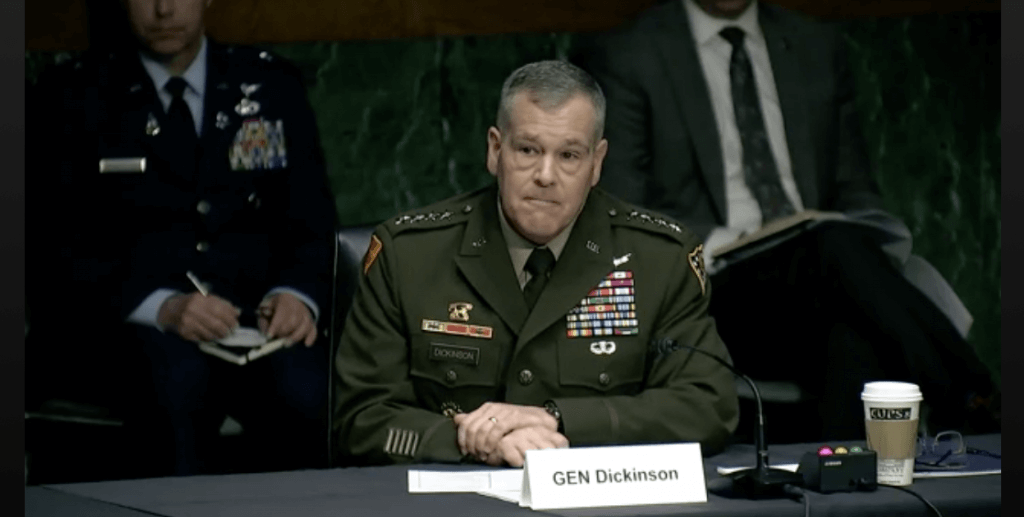WASHINGTON — U.S. Space Command has been impressed by SpaceX’s ability to provide internet access in war-torn parts of Ukraine, the head of the command told lawmakers March 8.
“What we’re seeing with Elon Musk and the Starlink capabilities is really showing us what a megaconstellation or a proliferated architecture can provide in terms of redundancy and capability,” Gen. James Dickinson, commander of U.S. Space Command, said during a hearing the Senate Armed Services Committee.
Dickinson’s comments were in response to questions from Sen. Tim Kaine (D-Va.), who noted that Starlink’s ability to deliver communications from space over Ukraine is “positive news” and also an example of “private actors in space entering into contested environments.”
“Russia has been trying to jam the signals and block coverage, and that’s made me wonder,” Kaine said. He asked Dickinson if there is a “legal framework” for U.S. commercial space companies that become involved in contested situations.
“We do look at that, senator,” said Dickinson. “We work very closely in our commercial integration cell on that very issue.”
The commercial integration cell, or CIC, is a group of 10 commercial satellite operators that work side-by-side with U.S. Space Command at Vandenberg Space Force Base, California. U.S. Strategic Command originally created the CIC to share intelligence about threats in space and other issues of concern given the military’s dependence on commercial space services.
The CIC includes Intelsat, SES Government Solutions, Inmarsat, Eutelsat, Maxar, Viasat, XTAR, SpaceX, Iridium Communications and Hughes Network Systems.
Starlink, with nearly 2,000 satellites in low Earth orbit, is by far the world’s largest commercial satellite constellation. SpaceX has permission to launch 12,000 satellites and is seeking approval to deploy 30,000 more.
SpaceX’s president Gwynne Shotwell said March 7 that the company had been working for weeks to secure approval for Starlink services in Ukraine before a government minister tweeted a request to Elon Musk.

